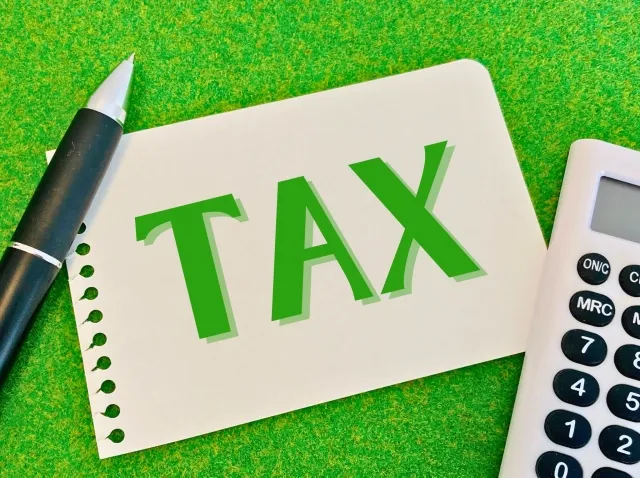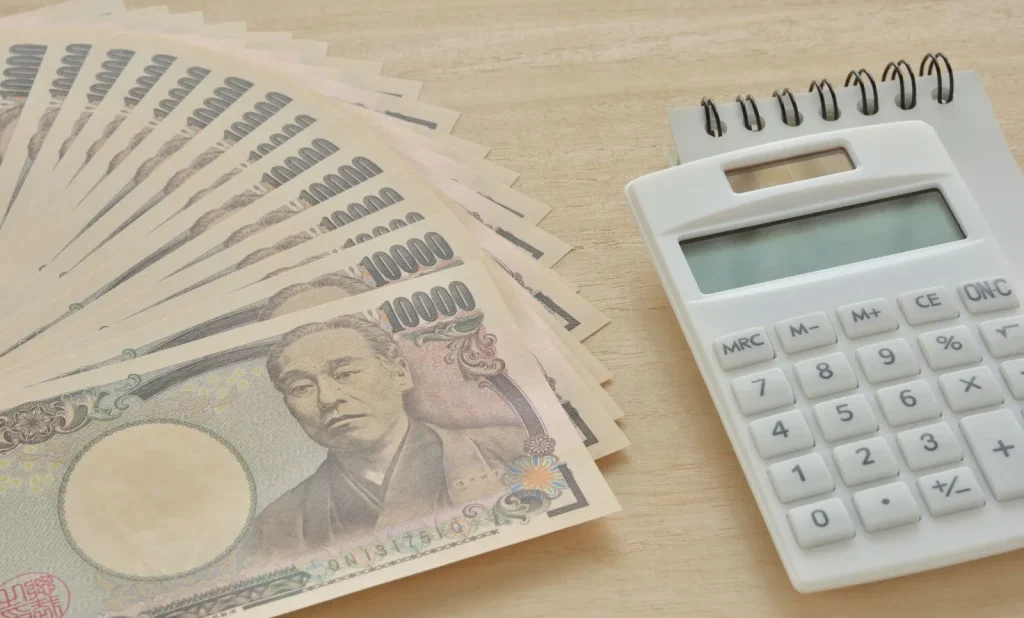Do foreigners living in Japan pay inhabitant tax? Explanation of who is eligible, calculation of the amount to be paid, and how to reduce it.

Foreign residents must also pay inhabitant tax when they work and earn money in Japan. The Japanese tax system is complex and difficult to understand, especially for foreigners.
Therefore, this article provides detailed information on the Japanese inhabitant tax, including who is subject to the tax, tax rates, calculation methods, and deductions and exemptions to reduce taxes, which foreign residents should be aware of.
▼Goandup Picks Click here for recommended articles!
- Required before studying abroad! Goandup Nihongo+, an online Japanese language learning service
- This page introduces services for foreigners who wish to study in Japan or improve their Japanese language skills to learn Japanese online.
- Goandup Salon" community for foreigners living in Japan
- We introduce an online community where foreigners living in Japan can exchange information and interact with each other to support their life in Japan.
- Goandup Study" supports foreigners who want to study in Japan.
- This section introduces study abroad support services that provide comprehensive support to foreigners who wish to study in Japan, from preparation for study abroad to living in Japan.
- Where can I buy a prepaid SIM in Japan? Recommended SIM cards for foreigners are also introduced.
- How to purchase a prepaid SIM and suitable SIM cards for foreigners.
- The Complete Guide to Pocket Wi-Fi in Japan for Foreigners!
- We introduce how to select and recommend pocket Wi-Fi products that can be used conveniently in Japan.
- The Complete Guide to Finding a Job in Japan! Finding a job, changing jobs, and part-time work for foreigners
- This site provides foreigners who want to work in Japan with comprehensive information on how to find a job, recommended job sites, and other information necessary to find a job.
What is the Inhabitant Tax in Japan?

Resident tax is read in Japanese as "juminzei," or resident tax, and is expressed in English as "resident tax. It is a type of local tax paid to prefectures and municipalities to finance infrastructure such as roads and parks, and public services such as education and welfare.
Residential tax is a tax levied on income, and foreign residents in Japan are also obliged to pay it if certain conditions are met. It is important to pay inhabitant tax in order to contribute to the development of the community in which you live.
Foreign nationals eligible for payment of Japanese resident tax

Next, let's take a closer look at what kind of foreign residents are eligible to pay Japanese resident tax.
Residential tax paid by non-residents
Non-residents are those who do not have a domicile in Japan and have not stayed in Japan continuously for more than one year. Non-resident aliens are basically subject to inhabitant tax on income earned in Japan only through a method called withholding at source.
However, there is an exception to this rule: "Even if you are a non-resident, if you stay in Japan for more than one year and your place of residence is recognized as being in Japan, you are subject to resident taxation. We recommend that you carefully check whether you fall under the category of a non-resident.
Resident tax paid by non-permanent residents
A non-permanent resident is a foreign national who resides in Japan but does not have "permanent resident" status. Specifically, this applies to those who have had a domicile in Japan for less than 5 years out of the past 10 years.
In addition to income earned in Japan, non-permanent residents are subject to inhabitant tax on the portion of income earned abroad that is brought into Japan (domestic source income). On the other hand, foreign source income, i.e., income earned abroad that is kept overseas, is not subject to the Japanese inhabitant tax.
Resident tax paid by residents other than non-permanent residents
Residents other than non-permanent residents, so-called permanent residents, are foreign nationals who either have "permanent resident" status or have had a domicile in Japan for more than five years out of the past ten years. Permanent residents are required to pay inhabitant tax on all income, not only income earned in Japan but also income earned abroad.
【 Keyword is 10% and Equalization 】 Japanese inhabitant tax rates and simple calculations

Japan's inhabitant tax is divided into two categories: per income and per capita. The per capita income tax is calculated by multiplying the amount of income by the tax rate (10%). On the other hand, the per capita tax is a flat tax regardless of the amount of income, and is 5,000 yen per year for both prefectural and municipal inhabitant taxes.
What is equalization?
The per capita tax is a part of the inhabitant tax levied in a uniform amount on all residents of the same municipality, regardless of whether they have high or low income. The tax is levied at a fixed amount regardless of income, and each municipality determines the amount of tax on its own.
For example, for a salaried worker with an annual income of 3 million yen, the amount of income is the amount of salary income minus the amount of employment income deductions. If the income is 2.5 million yen, the inhabitant tax rate is 250,000 yen (2.5 million yen x 10%), plus a per capita tax rate of 5,000 yen, for a total of 255,000 yen for the year.
Residential tax is a tax on the previous year's income, so you will receive a tax notice for the previous year around June every year. If you are a salaried worker, the tax is usually deducted from your monthly salary. If you are self-employed or pay the tax on your own, you must pay the tax with a payment slip sent by the local municipality.
How to Pay Resident Taxes in Japan

For company employees, the inhabitant tax is deducted from their monthly salary and paid using the so-called special collection method. On the other hand, those who are self-employed or other sole proprietors must pay by themselves with a payment slip, which is called ordinary collection.
In the case of ordinary tax collection, taxes are usually paid four times a year in June, August, October, and January of the following year. Payment methods such as payment at convenience stores, direct debit, or credit card vary from municipality to municipality, so it is advisable to check your local municipality's method in advance.
Incidentally, salaried workers may also switch to ordinary tax collection, for example, if they retire in the middle of the year. Also, in many cases, pension recipients have the tax deducted from their pensions.
What happens if you fail to pay your inhabitant's tax and the delinquency charge

Residential tax must be paid by the due date, but there may be times when you are unable to pay by the due date for various reasons. Here we explain what will happen if you fail to pay your inhabitant tax on time.
1. you will receive a notice demanding payment
If you have not paid your residence tax after the due date, a demand letter will be mailed to you by the municipality. The demand letter will also include a delinquency charge, so be sure to pay the tax in full as soon as possible using the payment slip attached to the demand letter.
Late fees are charged based on the number of days the payment is late.
If payment of inhabitant tax is delayed, a delinquency charge will be imposed in addition to the main tax. Delinquency charges are calculated based on the period from the day after the due date to the date of payment.
The current interest rate for delinquency charges is 14.6% per year in principle, but for the period from the day after the due date until the day after one month has passed, the rate is 7.3% per year. However, for the time being, special exceptions may apply to these interest rates, and even lower rates may apply.
The late payment fee is a system established to maintain the fairness of tax payments. The longer the payment is delayed, the greater the burden of the late fee, so it is important to meet the payment deadline.
Eventually, property can be seized.
If the taxpayer still fails to pay the inhabitant tax after receiving a demand letter, the municipality will send several demand letters. If the taxpayer does not respond to the demand letter, the taxpayer's property, such as salary, savings, and real estate, may be seized.
If you can't pay, consult the authorities!
If you find it difficult to pay your inhabitant tax due to difficulties in living, it is best to contact the tax authorities for advice. In some cases, you may be able to use a tax deferment system, such as payment in installments, and in some cases, a tax reduction or exemption may be granted. Although it may seem difficult to discuss tax issues, do not hesitate to consult with the tax authorities.
Use 【 deductions and exemptions! How to reduce your 】 inhabitant tax payment

If you want to save as much tax as possible on your high inhabitant tax, it is wise to take advantage of deduction and exemption programs. If you have a justifiable reason, you can deduct a certain amount from your income or reduce the amount of tax itself.
1. take advantage of deductions
An income deduction is a system to reduce the amount of taxable income by deducting a certain amount from the amount of income. Various types of income deductions are available, such as the deduction for dependents, the deduction for medical expenses, and the deduction for donations.
Many of these deductions are the same for both income tax and inhabitant tax. It is important to check all applicable deductions when filing your income tax return.
2. take advantage of tax reductions and exemptions
On the other hand, a tax exemption system is a system that reduces or exempts taxes. For example, this system may be applied in the case of a significant decrease in income due to unemployment or illness, or in the case of a disaster that has left one in a state of destitution.
To receive the exemption, you must submit the prescribed application documents to your local municipality and receive certification. The scope of application and procedures for the exemption vary from municipality to municipality, so please contact your local government office for details.
Serious employment support to help you realize your dream of working in Japan!

Do you want to work in Japan?
Let us "Goandup" make that dream a reality!
【 Program Features 】
✅ JLPT N3 level Japanese language acquisition
✅ Thorough preparation for the specific skills test
✅ Full support for job hunting in Japan
Business-focused one-on-one lessons will help you find a job in Japan in the shortest possible time.
【 Program Menu 】
- Individual Japanese language lessons
- Intensive curriculum to obtain N3, especially specialized lessons for business Japanese that can be used at work.
- Intensive curriculum to obtain N3, especially specialized lessons for business Japanese that can be used at work.
- Preparation for the Specific Skills Test
- Customized materials for specific skill tests will be used to focus on frequently asked questions and learning to pass the test.
- Customized materials for specific skill tests will be used to focus on frequently asked questions and learning to pass the test.
- Resume and CV support
- To create resumes and CVs tailored to Japanese corporate culture, and to brush up on self-promotion and motivation for application.
- To create resumes and CVs tailored to Japanese corporate culture, and to brush up on self-promotion and motivation for application.
- Interview Preparation
- Guidance on areas for improvement through mock interviews and feedback based on corporate interview scenarios. Learn interview etiquette and behavior unique to Japan.
- Guidance on areas for improvement through mock interviews and feedback based on corporate interview scenarios. Learn interview etiquette and behavior unique to Japan.
- career consulting
- Provide introductions to companies that match the participant's career goals, select companies to apply to, and provide advice on the level of knowledge required by the companies to which the participant is applying.
- Provide introductions to companies that match the participant's career goals, select companies to apply to, and provide advice on the level of knowledge required by the companies to which the participant is applying.
- Chat Support
- In addition to one-on-one individual lessons, we also accept casual questions via DM (visa application, living support, assistance in finding a room, etc.).
If you are serious about your career in Japan, join us now!
▶︎ for more informationclick here.
We will do our best to support your success in Japan!
summary
The Japanese inhabitant tax is levied on foreigners depending on their type of residence. The tax rate is 10%, and the amount of tax due is calculated together with the per capita tax (5,000 yen per year). Income tax exemptions and deductions may be available to reduce the tax burden.
Residential tax is an indispensable tax obligation when living in Japan, but it is essential to fully understand it because of its complicated structure. We hope that you will use this article as a reference to properly pay your taxes while taking tax-saving measures that suit you.
Please also read the following article, which carefully explains tax rates, deductions, and payment methods, in order to help foreign residents better understand Japanese income tax. Let's learn the basics of income tax, which is one of the most important taxes along with inhabitant tax, together!
▶︎ Explanation of Japanese income tax rates, deductions, payment methods, etc. for foreigners!
Your support will help us!
Thank you for visiting Goandup Picks. Our mission is to provide you with more useful information to show the world what Japan has to offer.
Your support will help us to further enhance our activities, so please support us!






